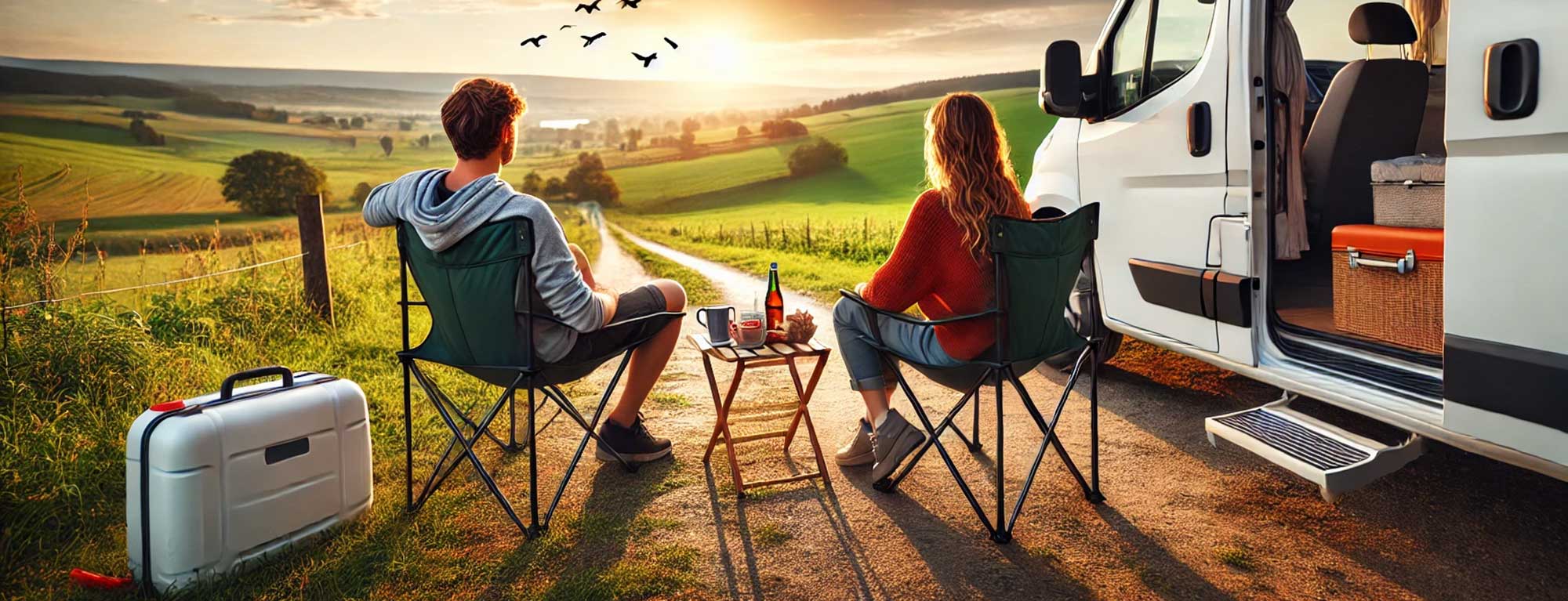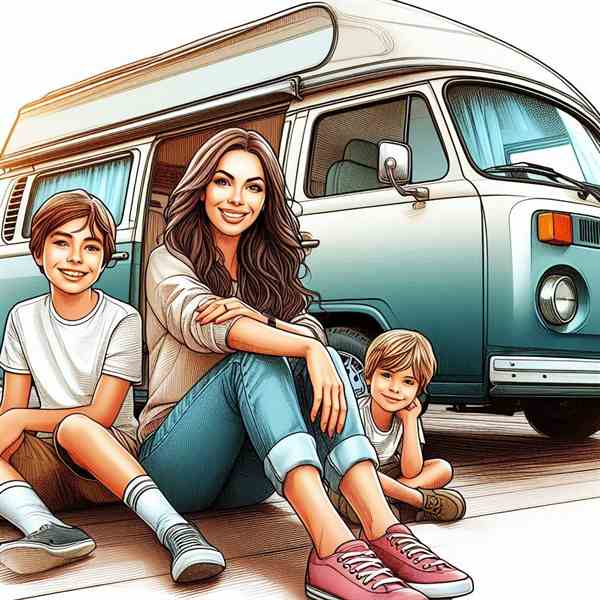

Liquefied Petroleum Gas (LPG) powers many really important comforts in a campervan, from the hob and oven to the heater and fridge. But with convenience comes responsibility. Gas safety is not something to take lightly. Handled incorrectly, it poses serious risks, from fires and explosions to silent, invisible dangers like carbon monoxide poisoning.
In most campervans, LPG is used for:
Some systems rely on refillable gas tanks, others use exchangeable bottles. Both types have different fitting and refill procedures, but the same safety principles apply.

How and where you store your gas bottles matters; a lot. All gas cylinders should be kept in a sealed, vented gas locker. This is designed to direct any leaking gas safely downwards and out of the vehicle.
Just imagine this: You're driving through the Alps, taking a tight bend, and a loose gas bottle topples and damages the regulator. Not something anyone wants mid-mountain.
Two very important alarms should be fitted:
Both should be tested regularly. Batteries don’t last forever, and you’ll want them working if something goes wrong in the middle of the night.
Your gas system needs to be inspected by a qualified engineer - ideally, one with the appropriate LPG certification for motorhomes. Even if everything seems to be working fine, faults can build up over time.
Some basics are worth repeating:
And yes, you can boil a kettle with the door open. Nobody has ever regretted playing it safe.
Some fridges allow gas operation whilst driving, but it's generally safer (and often recommended) to switch off the gas at the bottle. In a crash, an open gas line could be disastrous. For longer trips, consider using 12V power whilst in motion, then switching to gas once parked.
If you're heading into Europe, be aware that gas fittings and bottles can vary by country. Refillable systems with adapters can help, but do your homework in advance. Don’t assume every fuel station will have the same set-up.
Fitting new gas appliances, switching bottle types, or changing regulators? That may count as a modification. If something goes wrong, insurers may ask whether the gas setup was declared. Keeping your policy accurate may protect you in case of a claim.
Gas could be extremely wise to campervan life, but it deserves respect. A little caution, regular checks, and proper equipment make all the difference. If you’re not confident in your system or haven’t had it looked at in years, now is the time.
And if your camper has gas systems fitted, make sure your insurance reflects that. It’s worth getting quotes that properly match the equipment on board; a sense of being bolstered, after all, is worth a lot more than a warm cuppa.